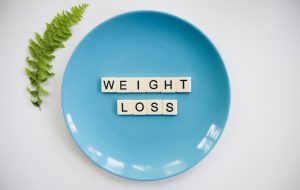Stepping into the weight industry where everyone is busy with weight loss strategies. Some want to reduce the extra fat, while some want to get rid of weight gaining foods, and others are wishing to reduce their calorie intake along with food prohibition. How to manage the weight bulks? However, people find it really difficult to lose weight because they are not sure what to do and what to avoid when you are going through a phase of weight loss. Also, sustaining the body weight throughout the lifespan is essential to maintain good health. Although, many behavioral and environmental factors affect a person’s body weight.

Maintaining healthy body weight and preventing excessive weight is highly preferable. Once a person becomes obese, reducing the weight requires much effort. This blog discussion refers to how you can manage weight along with exercise, what are strategies, what are the guidelines for good nutrition, best diet plans, and how to counter food addiction?
Weight management is the phrase used to describe both the techniques and underlying physiological processes that contribute to a person’s ability to attain and maintain a certain weight. Most weight management techniques encompass long-term lifestyle strategies that promote healthy eating and daily physical activity.

weight management and exercise play an important role in the health of people with diabetes. Research has proven that the best way to weight loss is through continuous exercise and doing any type of physical activity. Also, losing weight improves the risk factor for cardiovascular diseases by minimizing your blood pressure and cholesterol. Even a moderate 5-10% of body weight loss helps.


The National Institute of Health recommends that patients should educate themselves on various nutrition issues. Here are some guidelines for a healthy diet and good nutrition:

It is a cycle of dietary strategy between periods of fasting and eating, 12 hrs, 14 hrs and some go through 16 hrs. Start your meals light. BE MINDFUL if you are diabetic only with any condition that can’t fast be.
How it works: It restricts you to allow the calorie intake that consequently results in weight loss. This type of fasting is mostly safe for healthy persons.
Weight loss: Intermittent fasting has shown about 3-8 % weight loss over 3-24 weeks, which is a much greater percentage than other methods. (Trusted source)
Benefits: It has been linked to anti-aging effects, increased insulin activity, improved brain growth, reduced inflammation, and other diseases.
Plant-based diets restrict meat and animal products for various reasons. They help in weight loss by alleviating your calorie intake and offers many other benefits.
How it works: Although there are many types of vegetarian, most involve eliminating meat and poultry diet. However, some vegetarians may like eggs and dairy. however, some vegetarians like Lactovegetarian may like eggs and dairy.
Weight loss: A review of 12 studies including 1,151 participants found that people on a plant-based diet lost an average of 4.4 pounds (2 kg) more than those who included animal products. (Trusted source)
Benefits: These plant-based diets are linked to many other benefits, such as the reduced risk of chronic diseases like heart disease, cancer, and diabetes.
Low carb diet restricts carbs and calorie intake, which encourages your body to burn more fat as a fuel purpose.
How it works: Low-carb diet restricts carbohydrate consumption relative to the average diet. It is generally used for losing weight.
Weight loss: Many studies have revealed that low-carb diets are the best for weight loss and may be more effective than conventional low-fat diets. Because they limit carbohydrates and emphasize foods that are rich in protein.
For example, a review of 53 studies including 68,128 participants found that low-carb diets resulted in significantly more weight loss than low-fat diets. (Trusted source)
Benefits: They reduces the risk factors for heart diseases, including high cholesterol and blood pressure levels.
 4-The paleo diet:
4-The paleo diet:The paleo diet advocates eating the same foods that your hunter-gatherer ancestors allegedly ate.
How it works: It also involves eating whole foods, fruits, vegetables, lean meats, nuts, and seeds. It also restricts the consumption of processed foods and some dairy products like cheese and milk.
Weight loss: It can aid weight loss and reduce the harmful belly fat. Research has shown that it is more filling than popular diets like Mediterranean diets and low diets
.For example, in one 3-week study, 14 healthy adults following a paleo diet lost an average of 5.1 pounds (2.3 kg) and reduced their waist circumference — a marker for belly fat — by an average of 0.6 inches (1.5 cm). (Trusted source)

No doubt foods are more beneficial for your health and brain. But limiting food addiction is essential for your body health.
Food addiction is also overconsumption on even healthy or gourmet food, as compared to drug addiction. It is a relatively new and controversial term, and high-quality statistics on its prevalence are lacking.

https://www.spine-health.com/wellness/nutrition-diet-weight-loss/nutrition-and-diet-weight-loss
https://beingwell.yale.edu/programs/weight-management-nutrition/weight-management-options/your-own/weight-management-strategies
http://www.diabetescare.net/article/title/the-importance-of-weight-management-and-exercise
https://www.healthline.com/nutrition/best-diet-plans
https://www.healthline.com/nutrition/how-to-overcome-food-addiction